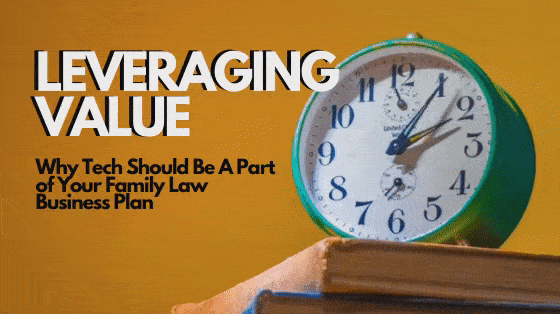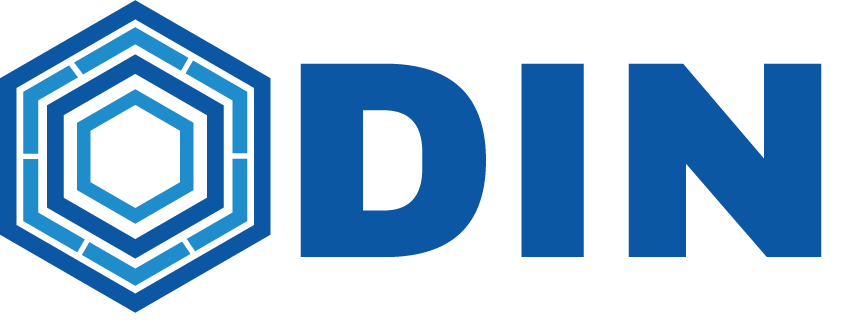The Business of Marketing Your ADR Process
Don’t let anyone tell you that there isn’t a market for an ADR, Collaborative or Mediation Practice. The Market Research simply does not back this conclusion. Current Market research in Ontario has shown that more than half of individuals researching a potential divorce are initially interested in alternatives to litigated legal processes.
Despite the growth of ADR offerings amongst experienced practioners, few are actually generating their core revenues from this market. And among potential clients, fewer are aware that your solution exists. This tells us that ADR Practioners need to be more effective in developing executable market strategies and communicating their specific ADR, collaborative law, or mediation message. The challenge does not lie in the size of the market. The challenge lies in the market finding you and what you are actually trying to message to them.
One of the most important strategies to growing your ADR practice is mastering how you communicate the existence, benefits, and actual nuts and bolts process of your professional services. You must be able to inherently convey value, confidence and trust that prospective clients can consciously and unconsciously resonate with. Your message must be clear, concise, easily repeated and make an immediate impact. The problem is not the legal process, the problem is a lack of business planning and marketing execution. Consider the following:
Clearly Define Your Target Market and Their Demographics
One of the most significant barriers to any business growth is poor demographic targeting. ADR professionals and certainly Family Law firms, are typically unable to market dominate, simply because they default to a shotgun approach… trying to speak to anyone and everyone. The shotgun approach may bring in clients that pay bills, but you will inevitably find your practice bogged in work that you do not want or worse, in a drain on time, resources and your personal, emotional limitations.
It really is this simple…. Who do you want to work with? What does your best clients look like? How old are they? What is their income bracket? Are they self-employed? What kinds of assets does your target demographic have? Do they have children? Where do they live? Do they rent, own a home, have investments?
Absent of very specific targets, ADR practices suffer from unclear messaging and thus misalignment between sales and marketing. Defining niches (fathers, LGBT, high conflict, domestic abuse, high income, legal aid, etc) and promoting your chosen specialties (collaborative law, unbundled services, mediation, etc.) allows you to focus your resources.

Professional experience, association memberships and academic awards are not client-centric skills. Client-centric skills are client-centric skills.
Spend Your Limited Resources ONLY On Your Target Demographic
Once you know who you are targeting, you will have a better idea of where to find them. Clear target markets will give you the ability to create an integrated sales and promotion approach, enabling sales productivity. Sales and marketing plans are executed more effectively when targets are tight.
For example, if you understand that your ideal target demographic tends to own homes in the city and cottages up north, you can stand out from other city firms by advertising to city dwellers while they are in cottage country. Spend your Google budget in cottage country where the costs will be dramatically lower. They find you there but hire you here.
Don’t Sell ADR, Promote What ADR Does!
Seriously, hardly anyone researching divorce ever googles “Collaborative Law.” Think about your own journey to collaborative law. You likely didn’t learn about it from a google search… you learned about it from another professional or in a conference setting. Even at that, you were not drawn to it by its name but rather by what it accomplishes.
Learn how to explain the benefits of ADR or collaborative law without the formal academic lingo. While potential clients do not google collaborative law, they do google “divorce without court” and “nicer divorce processes.” Message what your practice can do for your clients.

Learn how to explain the benefits of ADR or collaborative law without the formal academic lingo. Highlight what your practice can do for your clients.
"It’s A 'Better Process'" and 'ADR' is NOT a Marketing Message
ADR Professionals can be like doctors, dieticians and nutritionists that tell us all about better eating habits and alternative lifestyle choices. We get what they are saying. It makes sense. It’s what we should do. Yet McDonalds still sells billions of hamburgers despite a decades-long rise in rates of obesity and the deadly diseases that come with it.
How is McDonalds able to sell unhealthy burgers and fries even when the consumer knows they are unhealthy choices? Simply because fast food is quick, tasty, cheap, readily available and predictable. Defaulting to simple messages and engrained thought processes is easier than making healthier choices.
Better isn’t a clearly defined term. And nobody wants to risk “alternative” for their one and only divorce. Alternative speaks to unfamiliar, novel and unproven.
Your marketing message must be able to get a real person over that alternative hump and be willing to try something that is unfamiliar to them. Nudge your market into better, by speaking to what is important to them now. Use language that doesn’t sound so scary. “My legal process is about families, working together, the right professionals for the right tasks, teams that are committed to negotiating, comforting guidance at every step.”
Define Your Competitive Advantage
In Family Law, many lawyers, mediators and financial practices are stuck in the Sea of Sameness. In order to truly succeed in any business, you (and more importantly your clients) need to understand the unique value you bring. A well thought out business strategy should consider how your practice can create space from competition in its customer services, service offering, specialty skills, revenue model, delivery system and more.
You can Be President of The Bar Association AND Still Be "Not SO Great" At Business
Professional experience, association memberships and academic awards are not client-centric skills. Client-centric skills are client-centric skills. And client-centric skills are the key to all successful business plans.
It’s the old line, “clients don’t care how much you know until they know how much you care.” You may be lawyer of the year according to the local Law Society, but if you deliver poor communication, bad customer service and poor people skills, your clients will not be happy. Bad Google reviews kill business. Require your soft-skill resume to be bigger than your professional resume.
When you and your legal process are client-centric, your professional experience, association memberships and academic awards become an added value that you bring to your clients. This is the whipped cream on top of the pie that you strategically market.







